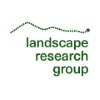Australian Mythical Landscape and the Desire of Non-English-speaking Immigrants
DOI:
https://doi.org/10.34900/lr.v17i1.1010Abstract
Through their frequent visits to public green spaces in cities with white majority cultures, non-English-speaking immigrants draw attention to the way people from different cultural backgrounds perceive and use these spaces. By building on theories of landscape as a cultural phenomenon, this paper investigates new ways in which recent generations of immigrants to Australia are using urban park spaces. It focuses on cultural and mythical notions of Australian park landscapes and questions to what extent they contribute to the sense of inclusivity, or alienation, that non-English-speaking immigrants experience in using these spaces.
This paper examines the mythology surrounding the ‘bush’ and ‘Arcadia’ and how these are intrinsic to Anglo-Australian consideration of natural landscapes, landscape design and, therefore, urban park character in Australia. These characteristics, along with the influence of English picturesque design, have resulted in landscapes that illustrate the aesthetic of nature and facilitate sporting activities. However, how are these landscapes, which are culturally meaningful for insiders, perceived by newcomers? Non-English-speaking immigrants in Australian urban park spaces reconnect to their memories of place and cultural identities. They also show stronger preferences for passive activities and socialising, and express their selves and culture in relation to nature in urban parks.
Mythical notions of park landscapes that have evolved in Australian culture, coupled with the desire of recent non-English-speaking immigrants to use urban park spaces in ways counter to these notions, have given rise to dialectical attitudes towards Australian landscapes and their meanings. This paper suggests ways that these insights can be used to improve the design and management of urban parks so that they promote inclusivity and a sense of belonging for all park users in multicultural Australian cities.
Downloads
Downloads
Published
How to Cite
Issue
Section
License
Authors who publish with this journal agree to the following terms:- Authors retain copyright and grant the journal right of first publication with the work simultaneously licensed under a Creative Commons Attribution License that allows others to share the work with an acknowledgement of the work's authorship and initial publication in this journal.
- Authors are able to enter into separate, additional contractual arrangements for the non-exclusive distribution of the journal's published version of the work (e.g., post it to an institutional repository or publish it in a book), with an acknowledgement of its initial publication in this journal.
- Authors are permitted and encouraged to post their work online (e.g., in institutional repositories or on their website) prior to and during the submission process, as it can lead to productive exchanges, as well as earlier and greater citation of published work (See The Effect of Open Access).


